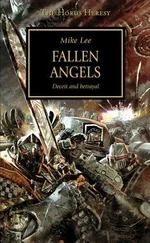‘Christ!’ The shout was like a wail, drawn out, wolf-howling, and the Gypsy turned, stepped over the horror and caught Toby Lazender about the waist. He pushed the young Englishman back against the landing wall, holding him there as Drew, an Embassy clerk, hovered helplessly. Drew, the Gypsy saw, had been sick.
‘I’ll kill them! I’ll kill all those bastards! I’ll kill them!’
Pierce, a Secretary at the Embassy, came running down the corridor. ‘Toby!’
Toby was sobbing the word ‘kill’ over and over, and Pierce looked in horror as the Gypsy held the struggling young lord against the wall. It was in anticipation of this reaction, this anger, that Lord Gower, the ambassador, had ordered the men to ride without weapons.
The Gypsy spoke to Toby Lazender in French. ‘Go downstairs.’
‘No!’ Toby howled the word. ‘No!’
‘I’ll bring her for burial. Go downstairs, my Lord.’
‘My Lord!’ Pierce took the younger man by the arm.
‘Come on. Come on! Gitan will bring her.’ He looked despairingly at the tall gypsy. It had been the ambassador who suggested that Gitan accompanied the search party; there was no man more competent, more accomplished than the Gypsy. Pierce saw the ease with which he pinioned Lord Werlatton. ‘You’ll have to help us take him down.’
The three of them took Toby Lazender down the stairs, down the steps into the yard where the bodies lay in muddled heaps, led him over the blood in the gutter, and even the grinning, blood-spattered men and women at the open gate looked nervous because of the anger and grief that was on the Englishman’s face. Pierce talked to him all the time, talked in English, told him to make no trouble, to leave, to go back to the Embassy, and the horse-master untied their horses and watched them ride away.
The Gypsy let out a long breath. If Toby Lazender had lashed out just once then the crowd would have reacted, would have drawn their blood-stained swords and hacked the Englishmen to pieces. He waited until the three horsemen had disappeared in a dark alley and until the sharp sound of their hooves had faded into the gathering night.
He turned back to the yard of the prison. Torches were being lit and pushed into their iron brackets and the flames were lurid on the heaped bodies. There were men, women and children in the pile of corpses. Some of the children had been too young to have known what happened to them.
It was the same in half the prisons of Paris. The Commune, the new rulers of Paris, had howled that the aristos and the rich were sending messages to the Prussian and Austrian enemies and so the Minister of Justice had ordered them arrested and imprisoned. Then the rumour had gone round the little streets that the aristos planned to break out of the prisons and bring swords and knives to murder the Revolutionary government, and so the people had struck first. They had massacred the prisoners. Aristocrats, priests, servants; men, women, children, all dead in the prisons. Over a thousand had died in the week, hacked and raped and mutilated until the mob was tired of the killing.
Jean Brissot came and stood beside the Gypsy. ‘They found her then?’
Gitan nodded. ‘They found her.’
‘Which one?’
‘Fourth floor. Cut up.’ Gitan’s deep voice was laconic, seemingly uncaring, but his words provoked the fat man to sudden enthusiasm.
‘Long black hair? Pretty girl? Christ! We had joy with that one. Dear God!’ He shook his head with remembered admiration. ‘They’re different, you know.’
‘Different?’ Gitan looked at the grossly fat man.
Brissot nodded. ‘White skins, Gitan, like bloody milk. They only brought her in this morning. I took one look and I couldn’t believe our luck! God! A man could live a hundred years and not see a girl like that.’
The Gypsy had rolled another cigar that he lit from a torch above his head. ‘Who brought her in?’
‘Marchenoir.’
‘Ah!’ The Gypsy nodded as though the answer was not unexpected.
Brissot looked nervously at the tall, calm Gypsy. ‘He knows you’re here. I mean I sent word when you came with the Englishmen. You can’t be too careful these days.’
The Gypsy nodded. ‘True. You did the right thing.’ He smiled reassuringly at the fat man, then stared at the bodies; fat, thin, old, young, a mess of death. ‘So you had the girl, Jean?’
‘Twice!’ Brissot laughed. ‘You should have been here, Gitan. Skin like milk! Soft as bloody silk!’
The Gypsy blew smoke over the lolling, black-streaked bodies in the yard. ‘I need to find a sack. I’m taking her away.’
‘Look in the storeroom.’ Brissot jerked his head towards a doorway. ‘Plenty of empty flour sacks.’ He watched the Gypsy pick his way among the corpses towards the store. ‘Gitan?’
‘My friend?’
‘Why did the Englishman want to find her?’
The Gypsy turned. He blew smoke into the torchlight, and it drifted above a small child’s corpse. He grinned. ‘He was going to marry her next week.’
‘Next week?’
The Gypsy nodded.
Brissot bellowed his laughter round the courtyard.
‘He should have hurried! We got her first! I hope the bastard knows what he’s missing! Married next week, eh? Skin like cream! She was a bloody treat, my friend, I tell you. Still,’ his laughter died and he shrugged, ‘I suppose you’ve had lots of them.’ He sounded jealous.
‘No,’ Gitan said, ‘I haven’t.’
‘You haven’t had an aristo?’ Brissot was unbelieving. ‘Not this week?’
‘Not ever.’ The Gypsy turned away to find a sack to serve as a shroud for a dead aristocrat.
The Gypsy worked slowly, the foul cell lit by a single candle as he scooped the remains from the stone floor and, with bloodied hands, pushed it into the sack.
When the work was half done he heard heavy footsteps on the landing. With them came the thick smell of cigar smoke. The Gypsy rubbed his hands on a corner of the sack, stood, and leaned against the wall.
A large, fierce-faced man appeared at the cell door. He was a man in his late forties whose shoulders were humped with muscle like an ox. He was huge-chested, massive-armed; everything about him spoke of strength and weight. His shirt had separated from his trousers, showing the straps of a corset that held in his belly. He looked at the mess on the floor and at the Gypsy’s stained hands. ‘You’ll forgive me if I don’t shake hands with you.’ He laughed.
The man was called Bertrand Marchenoir. There had been a time when he was a priest, a fierce preacher made famous by the vitriol of his sermons, but the revolution had let him abandon the service of God for the service of the people. He was now a leader of the revolution; a man to fear or love, but never ignore.
Marchenoir bullied his followers; he preached, he shouted, he thumped tables into the night, he led, he harangued, he wept false tears to rouse the mob, his gestures were as expansive as his oratory. His voice, starting low and rising to a massive crescendo, had stirred the people from their slums out into the great streets of Paris. He had been at the Bastille, he had helped fetch the King from Versailles, and now his massive, terrifying force whipped the laggards in the National Assembly. ‘Forward! Forward!’ was his cry, and this week in Paris, fearing that the revolution would go backwards, Bertrand Marchenoir had led the slaughter in the prisons.
For those who wanted vengeance on their betters, Marchenoir was an idol. For those who wanted moderation, he was a scourge. No one was allowed to forget that he was peasant born; no gutter, he said, was lower than the one in which he had been spawned, and no palace, he shouted, was so high that it could not be pulled down. Forward, ever forward, and this week a thousand and more had died that Marchenoir’s revolution could go forward.
Читать дальше












